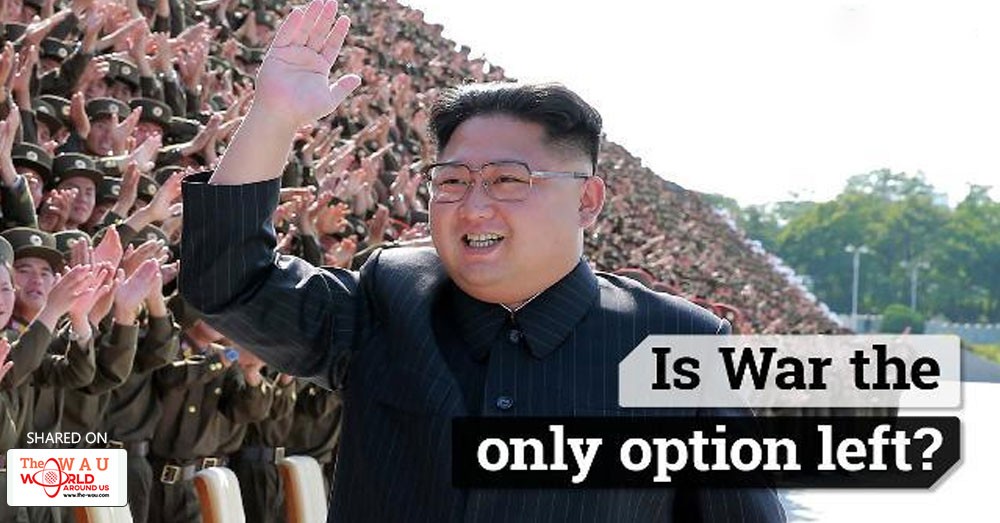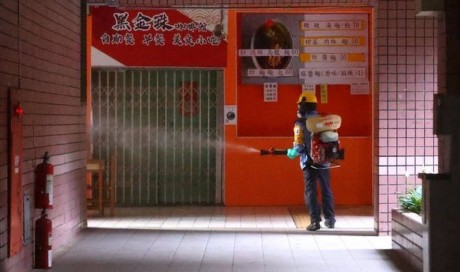JULIE Bishop has moved to reassure Australians the nation is not a primary target for North Korea despite its threats of “disaster” at the weekend.
The Foreign Affairs Minister responded to Pyongyang’s direct threats today, saying Australia’s determination to find a peaceful solution was only strengthened by its provocative language.
Her remarks come as the international community braces for another missile test by the rogue nation this week.
“Australia is not a primary target and North Korea has made threats against Australia before,” Ms Bishop told reporters in Sydney.
“But North Korea’s threats only strengthen our resolve to find a peaceful solution to the rising tensions on the Korean Peninsula, caused entirely by North Korea’s illegal, threatening and provocative behaviour.
“Our focus is on deterring North Korea from continuing to carry out illegal ballistic missile and nuclear weapons’ tests and to compel it back to the negotiating table.”
North Korea criticised and threatened Australia for aligning itself with South Korea and the United States and for its attitude toward the Pyongyang regime.
The rogue nation has said that Australia has made a “dangerous” move to join the US in hostile action against its regime, warning that it could result in a “disaster” for the country.
“Lately, Australia is showing dangerous moves of zealously joining the frenzied political and military provocations of the US against the DPRK,” the Korean Central News Agency (KCNA) said in a statement on Saturday.
The nation also took aim at Foreign Minister Julie Bishop and Defence Minister Marise Payne, who have been meeting with South Korean counterparts in Seoul.
Ms Bishop and Senator Payne visited the truce village of Panmunjom.
“The Australian foreign minister personally expressed her support for the stand of the US to consider all options including the use of force towards the DPRK, and turned up at Panmunjom on October 11 together with the Australian defence minister to condemn the DPRK during her visit to South Korea,” it added.
Panmunjom is located within the tense demilitarised zone (DMZ), a 4km-wide strip that separates the two Koreas, which have technically been at war for more than 65 years.
During the visit, the ministers stressed the need for diplomatic pressure to thwart North Korea’s nuclear ambitions and urged the country not to carry out any more weapons tests and halt its nuclear and missile program.
But North Korea has sent a chilling warning to Australia and the two Turnbull Government ministers.
The KCNA said that there are media reports that Australia is preparing for a war on the Korean Peninsula, citing a joint military drill with the US. It warned of a disaster should it continue the hostile acts.
“Should Australia continue to follow the US in imposing military, economic and diplomatic pressure upon the DPRK despite our repeated warnings, they will not be able to avoid a disaster,” KCNA warned.
The warning comes after Ms Bishop pledged solidarity with South Korea in the face of the North’s ongoing nuclear threat.
“We stand united with (South Korea) against the provocative and threatening behaviour of North Korea,” Ms Bishop told reporters.

The ministers discussed ways to work together to compel North Korea back to the negotiating table.
The visit comes as a small quake was detected near the North’s nuclear test site early on Friday.
The tremor was the latest in a string of at least three shocks to be observed since Pyongyang’s September 3 nuclear test, which caused a 6.3 magnitude earthquake.

The series of quakes has prompted experts and observers to suspect the last test, which the North claimed to be of a hydrogen bomb, might have damaged the mountainous location in the northwest tip of the country, where North Korea’s six nuclear tests were conducted.
Senator Payne and Ms Bishop have also visited the Korean War Memorial to pay their respect to the 340 Australians who lost their lives during the Korean War.
Share This Post















